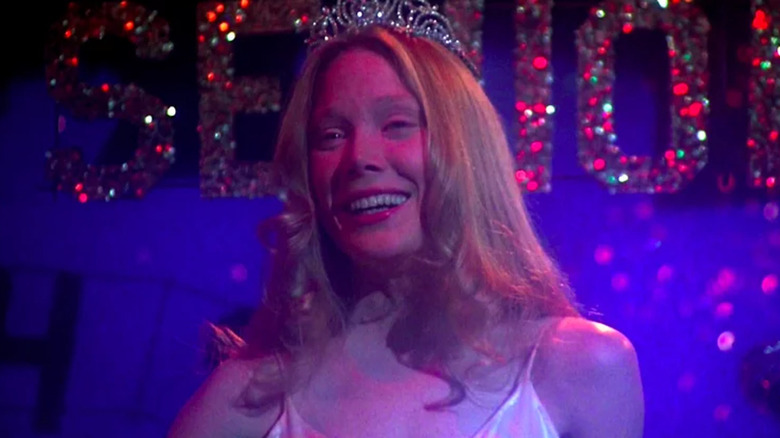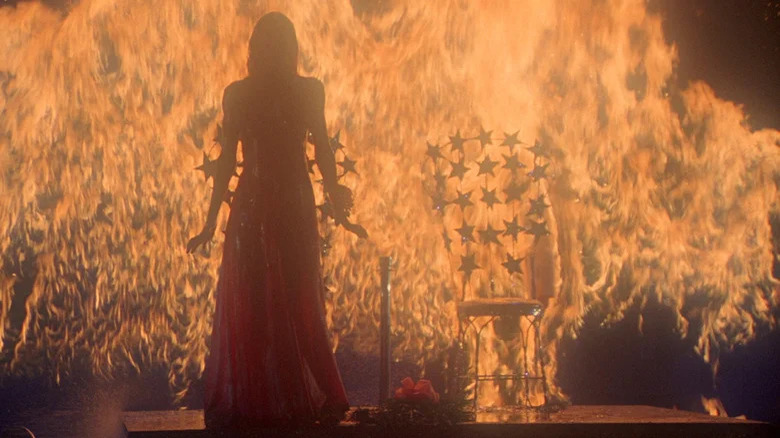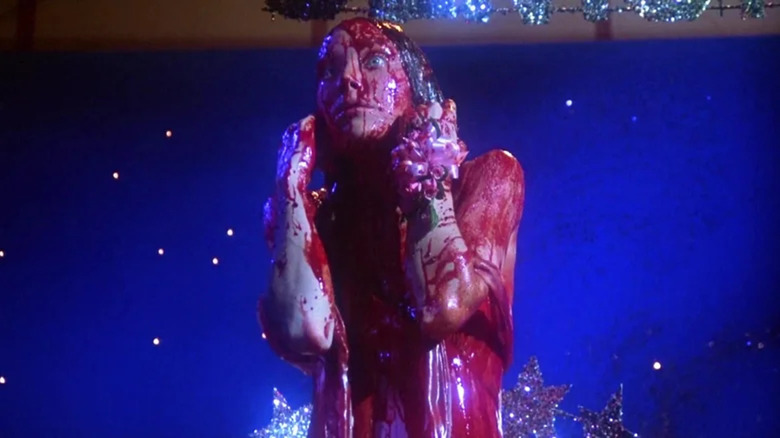There are a lot of Stephen King movies, and that’s a trend that shows no sign of slowing down — a new adaptation of “Salem’s Lot” is due out on Max sometime this year, while “Longlegs” director Osgood Perkins has a take on King’s short story “The Monkey” hitting theaters next year. We all know about the quantity — but what about the quality? I’m a Stephen King nerd, and in all honesty, I enjoy the vast majority of his movies — but I’ll also admit some of them are duds (I’m looking at you, “Cell”). Horror is a beloved genre by many, but for a long time, some movie critics felt it was a gutter; a seedy place where no light could break through. As a result, there are some King movies with, let’s say, less-than-stellar reviews.
The aggregation site Rotten Tomatoes can be a good place to search out movie reviews, but as always, it’s important to remember that Rotten Tomatoes should not be the final say in a movie’s quality. But if you like to peruse RT, you might be wondering: how do Stephen King’s movies stack-up? We already wrote about the worst Stephen King movie according to Rotten Tomatoes (you can read that right here), but what’s the best Stephen King movie, at least according to Rotten Tomatoes? As it turns out, the answer is also the first Stephen King movie: “Carrie.”
Brian De Palma’s Carrie
Most Stephen King fans know the story: in the 1970s, Stephen King was struggling to make ends meet, first making under 2 bucks an hour at an industrial laundry and then working as a high school English teacher. In his spare time, he wrote short stories that he sold to men’s magazines. Most of his stories were about male characters, and then a friend suggested he try writing about a female character for a change. He wrote a few pages of a story, didn’t like it, and tossed it in the trash. His wife, Tabitha King, fished the pages out and urged King to keep writing. He did, and the short story blossomed into a novel. That novel was “Carrie,” and it would hit bookshelves in 1974.
King’s novel tells the story of Carrie White, a tormented, bullied high school girl who also happens to possess telekinetic powers. One of Carrie’s classmates ends up feeling guilty about all the bullying and arranges things so that her boyfriend will take Carrie to the prom. Unfortunately for Carrie, the other students aren’t so sympathetic. They rig things so that Carrie will be crowned prom queen — only to then dump a bucket of pig’s blood on her head. Enraged, Carrie snaps and uses her powers to kill her tormentors.
Eventually, “Carrie” found its way into the hands of filmmaker Brian De Palma. De Palma liked the book and thought it would great movie, but no one had bought the film rights yet. According to Stephen Jones’ book “Creepshows: The Illustrated Stephen King Movie Guide,” producer Paul Monash finally scooped the movie rights up, but found that most studios weren’t interested in adapting King’s book. Eventually, Monash struck a deal with United Artists, who were looking for their own horror hit after the box office success of movies like “Rosemary’s Baby” and “The Exorcist.” As for King, he was reportedly paid just $2,500 for the film rights.
Working with a small budget (about $1.8 million), De Palma and screenwriter Lawrence D. Cohen turned King’s novel into a blockbuster starring Sissy Spacek as Carrie. The film even earned Academy Award nominations, for Best Actress (for Spacek) and Best Supporting Actress (for Piper Laurie, playing Carrie’s religious zealot of a mother).
Carrie is the highest-rated Stephen King movie on Rotten Tomatoes
Critics also praised on the movie, and that’s what makes it the highest-rated Stephen King movie on Rotten Tomatoes — it currently has a 93% “fresh” rating, based on 76 reviews. The Critics Consensus states, “‘Carrie’ is a horrifying look at supernatural powers, high school cruelty, and teen angst — and it brings us one of the most memorable and disturbing prom scenes in history.”
Pauline Kael, a critic who was one of Brian De Palma’s earliest supporters, loved “Carrie.” She called it a “terrifyingly lyrical thriller,” and wrote: “Scary-and-funny must be the greatest combination for popular entertainment; anything-and-funny is, of course, great — even funny-and-funny. But we come out of a movie like ‘Carrie,’ as we did out of ‘Jaws,’ laughing at our own childishness. It’s like watching our team win a ballgame — we’re almost embarrassed at how bracing it is.” Roger Ebert also praised the picture, and, like Kael, compared it favorably to “Jaws,” writing: “Brian De Palma’s ‘Carrie’ is an absolutely spellbinding horror movie, with a shock at the end that’s the best thing along those lines since the shark leaped aboard in ‘Jaws.'”
As for me, I don’t know if I agree that “Carrie” belongs at the top. “Carrie” is very good, but is it the best Stephen King movie? If I had to pick a top choice, I would probably go with Stanley Kubrick’s “The Shining,” even though King himself notoriously hates that adaptation. But King did like the “Carrie” movie. At one point, he even said that he felt the movie was better than his book. He’s also quoted as saying that he thinks the movie helped turn him into the bestselling author he is today. “[The book] did well in paperback, but it didn’t go on the [bestseller] list,” King told Starburst magazine, via “Creepshows.” “What happened is the De Palma film came out, and the De Palma film was great. Usually a movie tie-in doesn’t mean very much, if the movie stinks, because it doesn’t go anywhere. But if the movie’s great, a lot of times, it’ll take off. That’s really what made it happen for me.”





